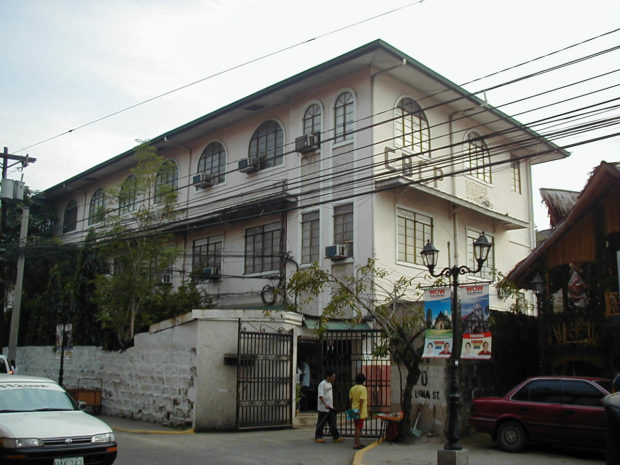Catholic, Aglipay churches on path to ‘healing’

Facade of Catholic Bishops Conference of the Philippines (CBCP)in Intramuros, Manila.
PDI PHOTO / RUDY ESPERAS
MANILA, Philippines — The Roman Catholic Church (RCC) and Iglesia Filipina Independiente (IFI) have taken the road to reconciliation and healing after 119 years of a “fractured relationship.”
On Tuesday, officials of both churches issued a joint statement and signed a document titled “Celebrating the Gift of Faith, Learning from the Past and Journeying Together,” in which they pledged to pursue a dialogue “in the spirit of repentance and forgiveness.”
“Both the IFI and the RCC thus express their readiness for more ecumenical cooperation amidst diversity. As church leaders, we ask and pray for mutual forgiveness for any injuries inflicted in the past. We shall strive for the healing and purification of memories among our members,” they said in the statement.
The signing was held at the National Cathedral in Manila of the IFI which was celebrating its 119th founding anniversary.
Archbishop Romulo Valles, Catholic Bishops’ Conference of the Philippines (CBCP) president; Archbishop Angelito Lampon, CBCP Episcopal Commission on Ecumenical Affairs chair; and Archbishop Antonio Ledesma, CBCP Episcopal Commission on Mutual Relations chair, signed for the Catholic Church but attended the event online.
Long history of ties
Bishop Emeritus Deogracias Iñiguez of Caloocan and Msgr. Bernardo Pantin, CBCP secretary general, were physically present.
On the other hand, the signatories for the IFI were Supreme Bishop Rhee Timbang; The Right Reverend Delfin Callao Jr. of the IFI Commission on Ecumenical Relations and International Affairs and The Right Reverend Vicente Salvador Ballesteros, Bishop of Greater Manila.
They recalled their long history of participating in the struggle for social justice, distribution of landholdings, and support for the peasantry that produced Filipino martyrs.
“Filipino nationalism which grew out of the earlier struggle of the Filipino secular clergy for recognition and from the struggle for social justice is a common legacy of both churches,” the officials said.
They encouraged local communities in parishes, schools and seminaries to hold joint prayer services such as the Celebration of the Week of Prayer for Christian Unity, the Stations of the Cross during Lent, Scripture Reading on Easter Sunday and other important feast days.
The IFI, also known as the Aglipayan Church, was founded in 1902 by Fr. Gregorio Aglipay and Isabelo de los Reyes when they broke away from the Roman Catholic Church.
The separation was a “religious revolution” that accompanied the Philippine revolution against Spain. It was born out of the local Filipino clergy’s resentment over the domination of Spanish bishops and priests and the continuation of their earlier nationalist struggle for recognition, symbolized in the Gomburza executions.
Under the leadership of Aglipay, the IFI adopted a Unitarian stance, or the belief that the God in Christianity is one entity, diverging from the Trinitarian view of the Catholic Church. But after his death in 1940, the IFI returned to a more Catholic position and entered into full communion with the Philippine Episcopal Church in 1961.














